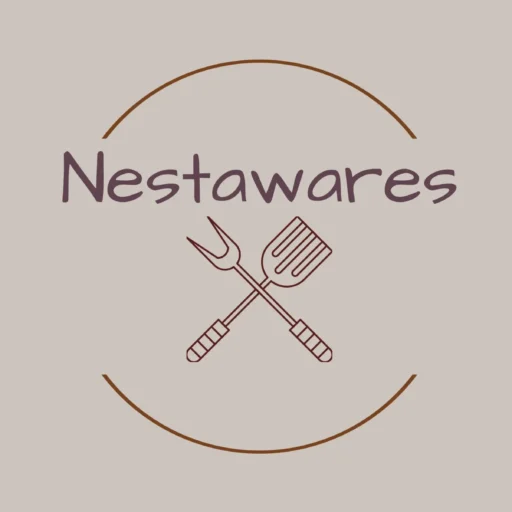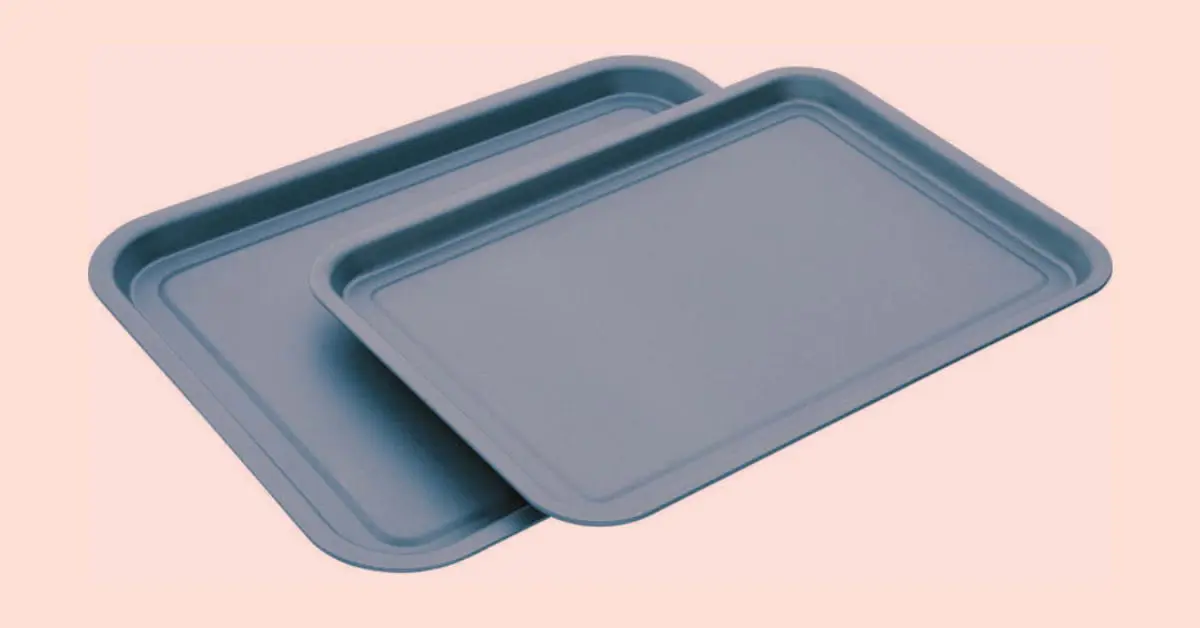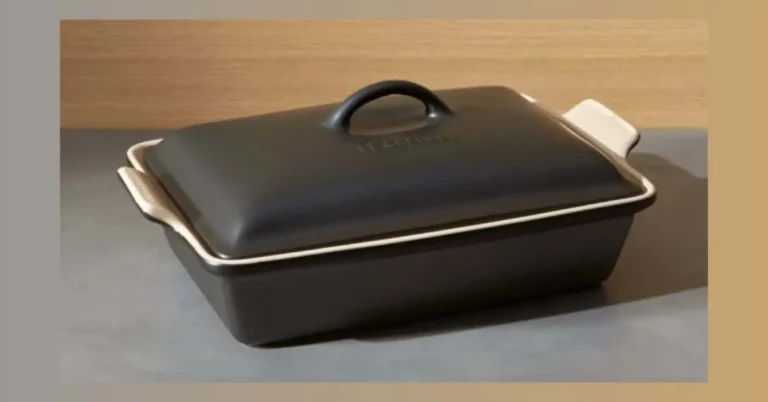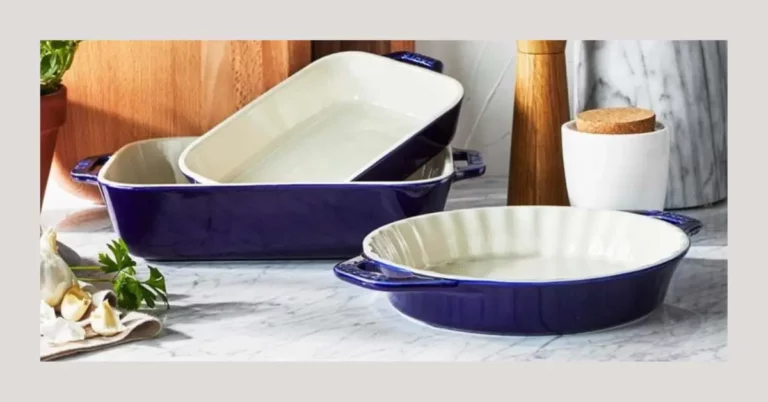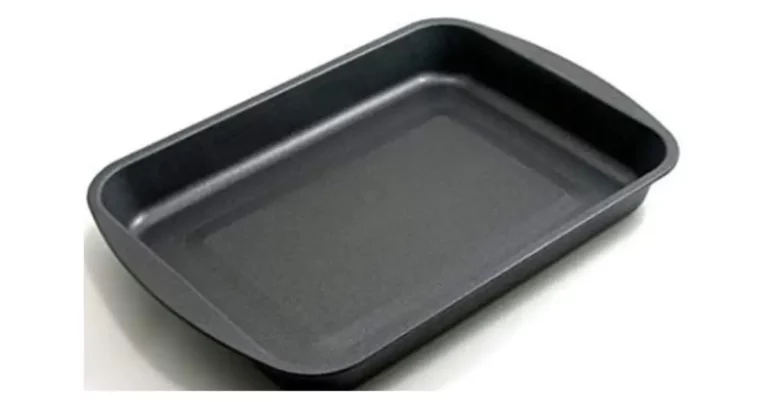Disclosure: As an Amazon associate, I may earn from qualifying purchases
What is Teflon?
Teflon™ has been improving cookware and bakeware for more than 50 years with its nonstick coatings, which make cooking and cleanup easier. They have a range of nonstick coatings that include a range of performance levels, designed for different cooking needs.
The Classic option is perfect for occasional use and provides quick cleanup and nonstick characteristics. The Xtra option is durable, easy to clean, and convenient for regular use. The Select option is a resilient choice for busy cooks who require daily solid performance.
The Profile option is a premium nonstick coating that uses revolutionary textured technology to help cookware look good and perform longer. The Platinum option is a long-lasting, metal-utensil safe coating that features an easy-to-clean surface. The best-performing options are Platinum Plus and Profile, which provide maximum lifespan and are also metal-utensil safe.
Teflon also introduces nonstick coatings that reflect any style with its Colour Collection. Products using these coatings undergo rigorous testing during every step of the supply chain to ensure they are the safest and most durable products. These coatings are also used in small electric appliances such as pressure cookers, irons, and grills.
They even offer a wide range of recipes for inspiration when cooking for one, a family, or a crowd.
Industrial bakeries require durable coatings for their bakeware, and Teflon coatings provide high-quality coating solutions. These coatings help improve the efficiency, hygiene, and safety of industrial bakery operations, while also enhancing the quality and nutritional value of the final baked product.
They can be used for industrial bakeware while offering a range of benefits, including improved process flow, excellent release capabilities, energy savings, and reduced product fat content due to no pan oil.
These coatings are long-lasting, allowing for the highest number of bakes with less downtime, and also contribute to improved safety and bakery hygiene, requiring less workspace cleanup.
Trays and molds made with Teflon industrial coatings are designed to withstand the demands of heavy use, and have been developed over 25 years based on extensive experience in the industrial bakeware market and scientific advancements in fluoropolymer technology.
These Teflon™ branded systems are available exclusively on trays and molds manufactured and marketed by a network of licensed bakeware marketers. Highly qualified, licensed applicators apply coatings to bakeware and re-coat bakeware on behalf of bakeries.
The Classic option is perfect for occasional use and provides quick cleanup and nonstick characteristics. The Xtra option is durable, easy to clean, and convenient for regular use. The Select option is a resilient choice for busy cooks who require daily solid performance.
The Profile option is a premium nonstick coating that uses revolutionary textured technology to help cookware look good and perform longer. The Platinum option is a long-lasting, metal-utensil safe coating that features an easy-to-clean surface. The best-performing options are Platinum Plus and Profile, which provide maximum lifespan and are also metal-utensil safe.
Teflon also introduces nonstick coatings that reflect any style with its Colour Collection. Products using these coatings undergo rigorous testing during every step of the supply chain to ensure they are the safest and most durable products. These coatings are also used in small electric appliances such as pressure cookers, irons, and grills.
They even offer a wide range of recipes for inspiration when cooking for one, a family, or a crowd.
Industrial bakeries require durable coatings for their bakeware, and Teflon coatings provide high-quality coating solutions. These coatings help improve the efficiency, hygiene, and safety of industrial bakery operations, while also enhancing the quality and nutritional value of the final baked product.
They can be used for industrial bakeware while offering a range of benefits, including improved process flow, excellent release capabilities, energy savings, and reduced product fat content due to no pan oil.
These coatings are long-lasting, allowing for the highest number of bakes with less downtime, and also contribute to improved safety and bakery hygiene, requiring less workspace cleanup.
Trays and molds made with Teflon industrial coatings are designed to withstand the demands of heavy use, and have been developed over 25 years based on extensive experience in the industrial bakeware market and scientific advancements in fluoropolymer technology.
These Teflon™ branded systems are available exclusively on trays and molds manufactured and marketed by a network of licensed bakeware marketers. Highly qualified, licensed applicators apply coatings to bakeware and re-coat bakeware on behalf of bakeries.
Table of Contents
What Do You Look For In a Non-stick Sheet Pan?
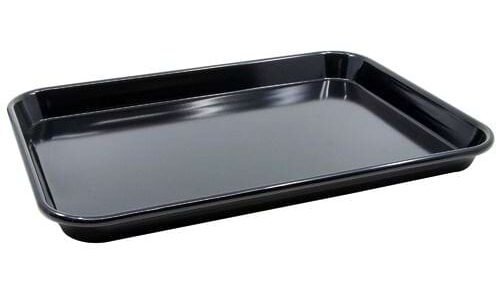
- Material: Non-stick sheet pans can be made of different materials, such as aluminum, steel, or silicone. Each material has its own benefits and drawbacks, so choose one based on your needs.
- Size: They come in various sizes, so choose one that fits your oven and the amount of food you want to bake.
- Coating: Look for a sheet pan with a high-quality non-stick coating that is durable and won’t scratch easily. The coating should also be PFOA-free.
- Thickness: Thicker pans tend to be more durable and provide better heat distribution, so choose one that is at least 0.6mm thick.
- Rimmed edges: Look for a sheet pan with raised edges to prevent spills and make it easier to move the pan in and out of the oven.
- Ease of cleaning: Choose a sheet pan that is easy to clean and dishwasher safe if possible.
- Brand reputation: Look for a trusted brand with good reviews to ensure the quality and durability of the sheet pan.
Can Teflon baking pans be put in the oven?
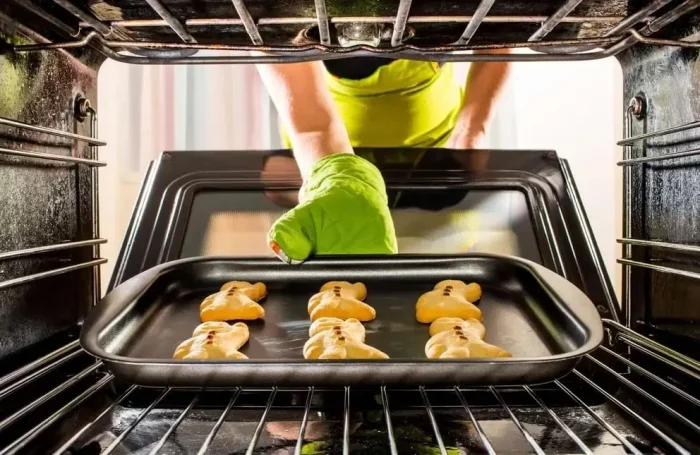
Yes, Teflon baking pans can be put in the oven, as they are designed to withstand high temperatures. Do check the manufacturer’s instructions to ensure that the pan is oven-safe and to avoid using it at temperatures higher than recommended.
It is also good to avoid using metal utensils on such pans, as this can scratch the non-stick coating and reduce its effectiveness.
It is also good to avoid using metal utensils on such pans, as this can scratch the non-stick coating and reduce its effectiveness.
Should You Buy an Uncoated or a Nonstick Sheet Pan?
Both uncoated and nonstick sheet pans have their advantages and disadvantages, and the choice depends on your specific needs and preferences.
Uncoated sheet pans are usually made of aluminum, which is a great heat conductor and helps distribute heat evenly across the pan. They are also generally less expensive than nonstick pans.
But they can be more difficult to clean, and food may stick to them more easily, which can make it challenging to remove delicate baked goods from the pan.
Nonstick sheet pans are typically coated with a layer of nonstick material, such as Teflon or ceramic. This coating allows for easy release of baked goods and makes the pans much easier to clean.
These can be more expensive, however, than uncoated pans. And the coating may wear off over time or scratch if not properly cared for.
To sum up, if you are baking delicate items that require a nonstick surface, or if you prefer an easy-to-clean option, a nonstick sheet pan may be the best choice for you. But if you are looking for a more affordable option and don’t mind putting in a little extra effort to clean and maintain your pans, an uncoated sheet pan may be a better choice.
Uncoated sheet pans are usually made of aluminum, which is a great heat conductor and helps distribute heat evenly across the pan. They are also generally less expensive than nonstick pans.
But they can be more difficult to clean, and food may stick to them more easily, which can make it challenging to remove delicate baked goods from the pan.
Nonstick sheet pans are typically coated with a layer of nonstick material, such as Teflon or ceramic. This coating allows for easy release of baked goods and makes the pans much easier to clean.
These can be more expensive, however, than uncoated pans. And the coating may wear off over time or scratch if not properly cared for.
To sum up, if you are baking delicate items that require a nonstick surface, or if you prefer an easy-to-clean option, a nonstick sheet pan may be the best choice for you. But if you are looking for a more affordable option and don’t mind putting in a little extra effort to clean and maintain your pans, an uncoated sheet pan may be a better choice.
Drawbacks to Using a Teflon-coated Baking Pan
Some potential disadvantages of using a Teflon-coated baking pan include:
- Limited lifespan: Teflon coatings can wear off over time, particularly with frequent use and exposure to high temperatures.
- Potential health risks: When these coatings are heated to very high temperatures, they can release toxic fumes that may be harmful if inhaled.
- Difficulty cleaning: The coatings can be more difficult to clean than other types of baking pans, particularly if they are scratched or damaged.
- Limited browning: Because they are non-stick, they may not produce the same degree of browning on baked goods as uncoated pans.
- Not suitable for high-heat cooking: Teflon pans are not recommended for use with broilers or under the broiler setting in ovens as they can’t handle high-heat.
Alternatives to Teflon Baking Pans You Should Consider
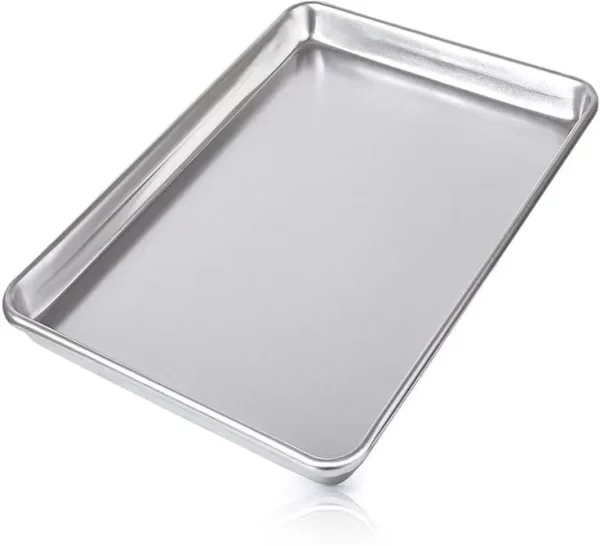
- Aluminum Baking Pans are a good alternative to Teflon pans as they are lightweight, durable and distribute heat evenly.
- Stainless Steel Baking Pans are also a great substitute for Teflon pans as they are durable, corrosion-resistant, and can withstand high temperatures.
- Ceramic Baking Pans are non-toxic, scratch-resistant, and can withstand high temperatures.
- Glass Baking Pans can also be used instead of Teflon pans as they are non-toxic, do not react with acidic ingredients, and are easy to clean.
- Silicone Baking Pans are a newer alternative that are non-toxic, flexible, and easy to clean. They are also non-stick and can withstand high temperatures.
What are the Most Reputable Brands that Sell Teflon Baking Pans?
There are many brands that produce high-quality non-stick baking pans, and the best one may depend on your specific needs and preferences.
- Chicago Metallic: They offer a diverse range of high-quality baking pans designed to elevate your culinary creations. With exceptional craftsmanship, their pans are crafted from premium materials to deliver outstanding performance and durability.
They provide a professional-grade selection that ensures even heat distribution for consistent, golden results, when it comes to bakeware.
The precision and reliability of Chicago Metallic makes them the top contenders when it comes to non-stick baking pans. - Wilton: Offers a wide range of baking pans including non-stick options made from heavy-duty steel with a non-stick coating.
- Nordic Ware: Known for their cast aluminum pans with a non-stick coating, which are tough and provide even heat distribution.
- Calphalon: Offers a variety of non-stick bakeware, including options made from heavy-gauge steel with a solid non-stick coating.
- Farberware: Offers a range of non-stick baking pans made from heavy-duty steel with a non-stick coating.
Now that you know the basics of picking the right non-stick baking pans for your baking needs, you may have even more questions regarding Teflon-coated bakeware and this article will help you out if that’s the case.
If this post helped, or if you have any questions about bakeware in general – you can drop a comment below and I will do my best to help you!
If this post helped, or if you have any questions about bakeware in general – you can drop a comment below and I will do my best to help you!
